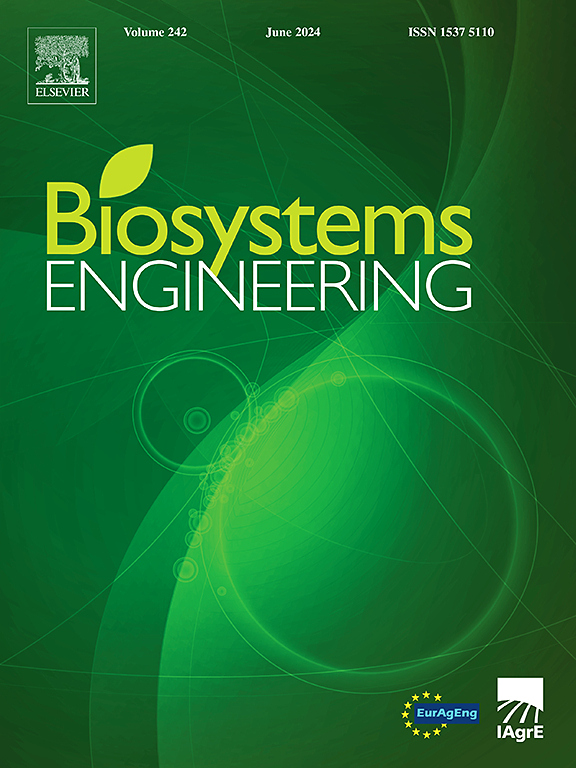Evaluating the potential of airborne hyperspectral imagery in monitoring common beans with common bacterial blight at different infection stages
IF 4.4
1区 农林科学
Q1 AGRICULTURAL ENGINEERING
引用次数: 0
Abstract
Common bacterial blight (CBB) is the most destructive bacterial disease affecting the production of common beans, and timely detection of CBB is crucial to limiting its spread. In this study, correlation analysis and the ReliefF algorithm were used to select vegetation indices (VIs) and texture features (TFs) that are sensitive to CBB. The CBB monitoring model based on support vector machine regression (SVR), random forest regression (RFR), and K-nearest neighbor regression (KNNR) was established using the selected the VIs, TFs, and their combinations. Then, the impact of the spatial resolution on the disease monitoring accuracy was evaluated. In addition, the early infection monitoring model was further optimised. The results show that in the early infection stage, when the spatial resolution was 0.07 m, the window size was 7 × 7, and the independent variable was a combination of VIs and TFs, the R2 of the monitoring model constructed via SVR was 0.72, which was 14.3% higher than that obtained for a 3 × 3 window (0.63). In the middle and late infection stages, the optimal spatial resolution was 0.1 m, and the monitoring model constructed using RFR and a combination of VIs and TFs performed the best, with R2 values of 0.81 and 0.88, respectively. The research results indicate that selecting an appropriate spatial resolution and window size can effectively improve the model's CBB monitoring ability and can provide a reference for accurate monitoring of large-scale CBB of common beans using airborne or spaceborne imaging spectroscopy technology.

求助全文
约1分钟内获得全文
求助全文
来源期刊

Biosystems Engineering
农林科学-农业工程
CiteScore
10.60
自引率
7.80%
发文量
239
审稿时长
53 days
期刊介绍:
Biosystems Engineering publishes research in engineering and the physical sciences that represent advances in understanding or modelling of the performance of biological systems for sustainable developments in land use and the environment, agriculture and amenity, bioproduction processes and the food chain. The subject matter of the journal reflects the wide range and interdisciplinary nature of research in engineering for biological systems.
 求助内容:
求助内容: 应助结果提醒方式:
应助结果提醒方式:


